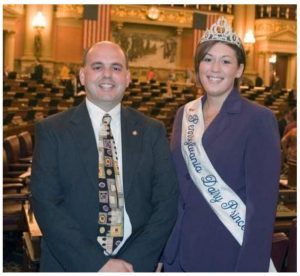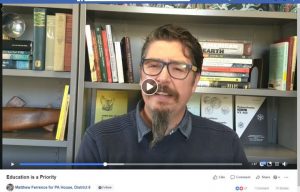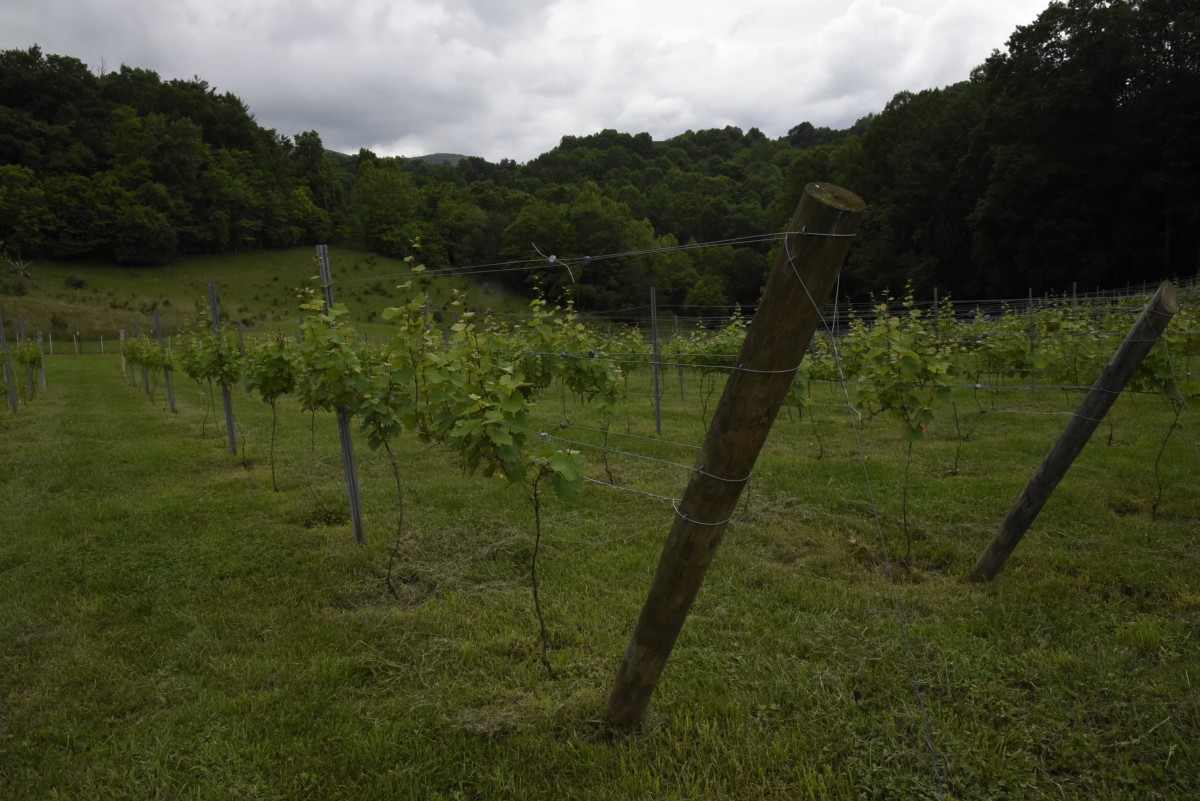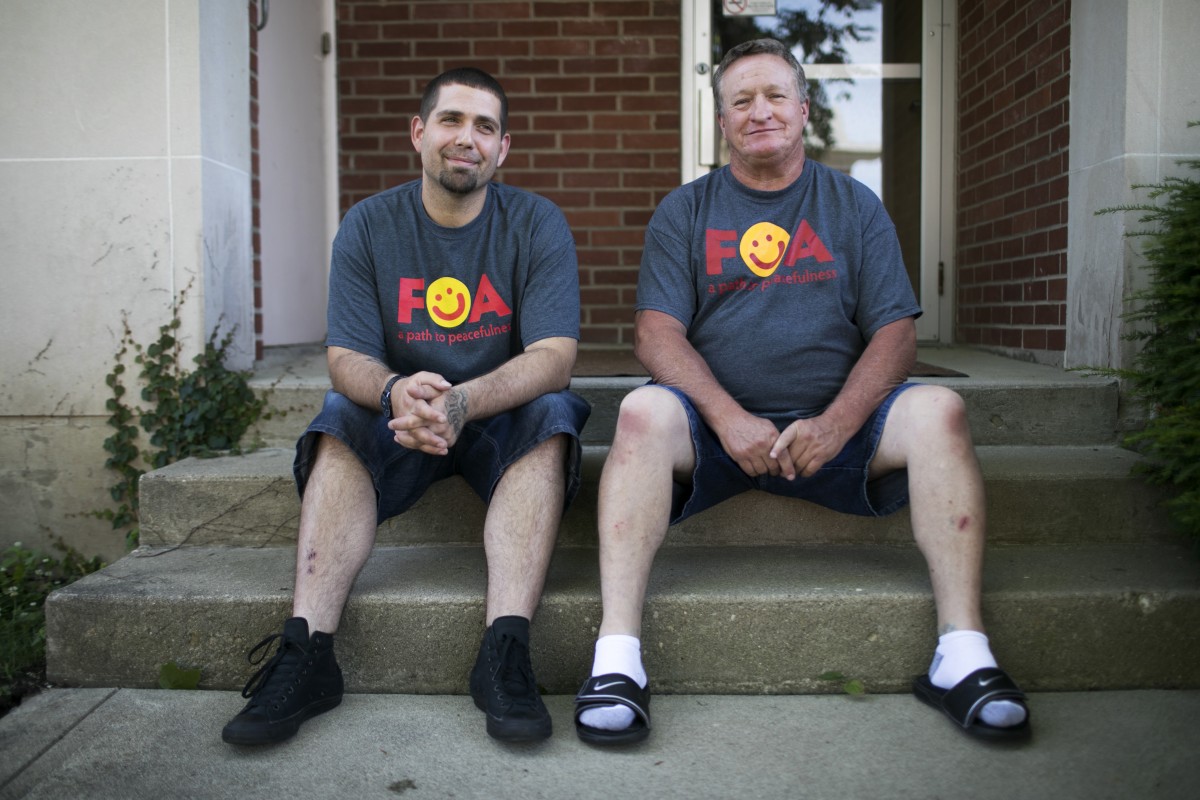The how isn’t quite as important as they why, I think, but in brief: exactly two weeks before the election, I announced on Facebook my intention to mount a write-in campaign for the Pennsylvania House of Representatives, disgusted that for the fourth time in seven elections, the local incumbent — Brad Roae — faced literally no competition. Nobody squared off against him in the Republican primary and nobody ran on the Democratic ticket. In fact, only twice in his tenure has he faced opposition from Democrats, each of them throttled to the tune of 60-40 or thereabouts in the general election.
As an even sorrier indication of the state of political engagement in the rural part of Northwestern Pennsylvania where I live, only once has a Republican ever challenged him in a primary. It’s smooth sailing every two years, which leads to a tepid, basic and uninspiring legislative track record. Taxes are bad, he says. And, oh, let’s have some laws to weaken environmental protections for gas well drilling. He has made public media posts that appear to equate school boards to Hitler, and he has argued that state funding shouldn’t support students who major in “poetry or some other pre-Walmart major.”
Yeah, that’s who I lost to, my 900 votes or so to his 13,000. And that’s the guy who has gone to Harrisburg for more than a decade representing my home. Among the many things that gall me about his incumbency is the way that, outside of Appalachia, a lot of people would probably nod their heads and say, yup. Brad Roae is the kind of representative people think Appalachia embraces, is the kind of person so many non-Appalachians see as purely representative of who we are and what we stand for.
But here’s the thing. I’m finding hope in my two weeks as a candidate, and in the sudden flurry of interest and support. I ran because there had to be some opposition for democracy to have any chance at all, and when I did so I hoped I’d get 1 or 2 percent, not embarrass myself, shoot for the bar of 300 votes. That would be the same number of votes I would have needed as signatures to get on the ballot had I, say, planned ahead.
Then a funny thing happened. I started making videos introducing myself and my ideas, and put together a platform paper, and people started sharing these materials on Facebook, and I had to work through the anti-Russian Bot regulations the social media site now has so I could finally “boost” two of those posts on the morning of the election, and even before all that the organic sharing of an electorate dying for something, anything, that pushed against Appalachian political stereotypes meant 9,000 people had seen my stuff. Then, even though people had to first know I was running and then actually bother typing my name in, I fared okay. I earned about 65 votes for each day of my campaign. And I spent $50 on stickers, $20 on my Facebook ads.

Official county returns compiled right before Thanksgiving gave me 851 votes. The Monday following, I reviewed the official computations and found another 60+, if I include misspellings like Matt Terrance and, Michael Ferrence, and Matthew Fetterman (for a voter who maybe confused me with our Democratic Lt. Governor candidate John Fetterman), and That Guy Whose Name Starts With F, as well as The Guy on Facebook Ask (name redacted), as well as a litany of close-but-no-cigar last names coupled with Matt or Matthew: Ferrer, Ferraro, Fetter, Farreah, Ferrenc, Ferrous, Ferris, Ferentz, Ferrick, and DeFerence. I got 14 votes in neighboring state districts, and four votes for the U.S. House Race. Among other write-ins, I beat a slew of names that received a single vote or a handful, tough competitors like Brad Roae (who a few people wrote in, even though he was on the ballot), Stephen Colbert, Anyone But Him, Anyone Else, Jesus, God, and Red Breasted Nuthatch.
Look, my day job is writing and teaching. I’m a professor at a small liberal arts college, chair of the Department of English, writer and teacher of creative nonfiction. I was born in southwestern Pennsylvania, among the played out coal fields and strip mines an hour east of Pittsburgh. I earned a Ph.D. at West Virginia University, where I specialized in Appalachian literature. I wrote a memoir about my brain tumor, and the geology of the Allegheny Plateau, and the curious exile of inhabiting the weird position of Northern Appalachian, which means you’re not quite normal American and not quite Appalachian. None of that adds up to politician, but all of it adds up to frustration. I’ve spent most of my life, other than brief adult stints in Arizona and France, living in a region that skews way right, even as that right continues to exploit and degrade the people and place. All Appalachia ever has been allowed to be is exploited. That’s it. And that’s all the rhetoric of the GOP offers, when you boil it down. Let’s Make America Great Again, like when black lung wrecked lives on the regular and, newsflash, is now roaring back to life since the unions have been busted, and the economy of the region stayed busted, so the people crawled down into mines without the protections hard fought with blood and love by the striking workers of Blair Mountain, and the striking workers of Pittsburgh steel, and the striking auto workers of the Rust Belt.

Public historian Elizabeth Catte gets it right (she’s the author of “What You’re Getting Wrong about Appalachia”) when she argues that Appalachians have been socialists all along. They just don’t know it. They gathered together. They fought the power of industrial dominion. They powered America with their coal, yes, but they also fueled the national movement for respect and dignity for labor. Then the GOP figured out how to weaponize hatred and fear, and there you go. You get Joe Manchin, alleged Democrat. And you get a region that votes more than 2/3 for Trump and Trump-esque troglodytes like Pennsylvania’s GOP gubernatorial candidate Scott Wagner, who claims that global warming is probably just accumulated body heat from a larger human population or happens because the earth is getting closer to the sun, and campaigns by saying he’ll dance on the governor’s face while wearing golf spikes.
It boils down to this: I am so tired of waking up on November Wednesdays in Appalachia, seeing election results and, worse, national punditry that says this is all we are and all we’ll ever be. The election map of my state is bright red, other than around a few urban centers, just like most of Appalachia. That seems to translate to the same conclusion we get over and over and over again: dumb hillbillies voting for the worst. That conclusion seems to be supported by the simple math of our state politics, where more than half of state legislators run unopposed in their general elections, and our incumbency rate is about 90 percent. Few candidates ever put up a fight to change that.
So what’s an Appalachian creative writing professor to do? You run a last-ditch campaign. You tilt against the windmills in a manner that is both impotent (because you get crushed at the polls) and, at least for me, hopeful. Because having a choice, any choice, other than the incumbent mattered to the 2,000 people who either voted for me or tossed in a symbolic protest write-in. Because people stopped me when I walked by, and messaged me on Facebook, and were angry when they learned about the campaign only after they voted because, damn it, they couldn’t vote for the incumbent, and leaving it blank is just what the GOP has wanted for so long. The story of Appalachian politics has been about that blankness, a cultivation of the sense — and you can read this in almost every national outlet at some point in the last two years, usually with a quote from that faux-Appalachian pseudo-pundit J.D. Vance — that there’s nothing but right-wing fools in these hills and hollers. Appalachia is given up for dead again, this time just as a tarnished example of the hatred and backwardness of politics in this strange, strange land.
That’s just not how it is. That’s not the Appalachia I know nor the one I saw in my brief campaign. Heck, I ran this mini-campaign focused specifically on lefty sustainability, as in ecology and tree-hugging, as well as economies that stop repeating the boom-bust cycles of our past, and I drew a mighty good swipe of votes all at once, in the end. There are a lot of people in my county who believe in the value of the environment, and the necessity of fine educations, and the rightness of universal healthcare, and the imperative of social justice, and the glory of love in all its forms. There are progressives in these hills, you know. And a lot of them, but also a lot who hear those same old stories and worry about what the neighbors will think, so they don’t vote, or accept the inevitability of political monoculture. Thus the slam happens again. And again. And again. Unopposed Republican. Platforms of no taxes. Tacit acceptance of the Confederate Battle Flags that flutter on too many once-Union farmhouses.
Yeah, I got creamed. But I think we also won something that night. And we’ll keep coming back for more, riding a blue wave tinged with green, fighting for a change in the rural center of America that so many figure is lost forever. You know the joke, about Philadelphia and Pittsburgh and a lot of Alabama in between. Well, Alabama has a Democratic Senator, and so does Pennsylvania. We can do more, do better, push against the dogged stupidity of a right-wing cultural war that makes us all weaker and worse off. We can step into these races, and we can square off and say, hit me, and we can get hit, and eventually we can win. I know I’ll give it another shot – with my name printed on the ballot next time. I’ll need at least a couple of months next time, to get enough votes to be competitive, if history holds. But I’ll vow, and I hope others will too, that no one gets to run unopposed anymore. No one gets to spit out tired political bullshit and not get called out. This is our Appalachia too.
This article was originally published by the Daily Yonder.



